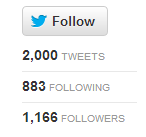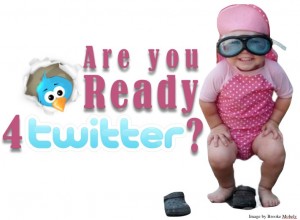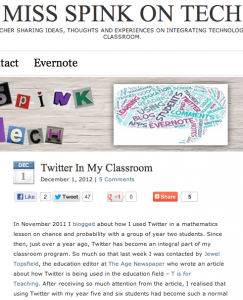I am involved in an online community called ETMOOC (which I hesitate to call a Course for reasons explained here). It is suggested that we use a blog as a reflective and communication tool. I was happy with this as blogging has become part of my professional activity over the past few years and it fits with my learning style, interests and skills. Quite naturally though, there are many who are new to blogging and I have noticed a large degree of trepidation amongst the first nervous posts. I have seen this amongst my colleagues as well, a mixture of people who are comfortable in this medium and those who are not, or at least use it in only one facet of their professional lives. It makes sense, as we know that we are all different, have different learning styles, are somewhere along the introversion/extroversion scale and will therefore all have different comfort levels at exposing our thinking in a public medium.
Four barriers to Blogging, by Ian Gray, suggests that Perfectionism and Procrastination are two major reasons why people don’t blog. My thinking is that the Perfectionism is the major one: many people believe that they have nothing to offer or that others know more than them and therefore their contributions would be of lesser value. I would like to encourage people to re-think their attitude if Perfectionism is hindering their involvement. I have mentioned this short clip before “Obvious to you. Amazing to others” but it remains relevant .
Are you holding back because you think you have nothing worthwhile to share? If so, I would like you to re-consider, think about how you happily read other people’s posts and how ideas and fears resonate with you. In my experience, the benefits gained from putting yourself out there far outweigh the nervous apprehension felt when your mouse hovers over the PUBLISH button. I admit that blogging is a risky experience but so too are most learning opportunities!
“Nothing spectacular just my ordinary thoughts” – Derek Sivers
If you are new to blogging I congratulate you and suggest you persist, find a purpose (ETMOOC for example) and blog away. Don’t be deterred by a lack of comments as sadly there is only a very small number of people who read and actually comment despite enjoying what they read! If you are an experienced blogger perhaps you could add to the conversation? Why do you blog?



